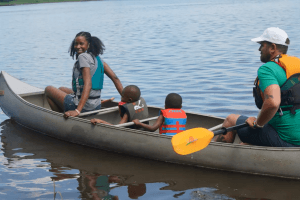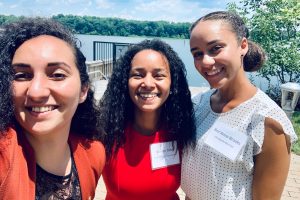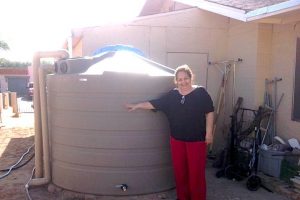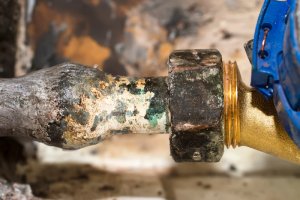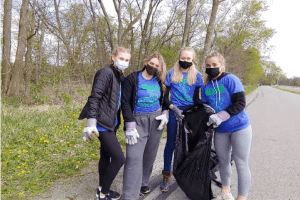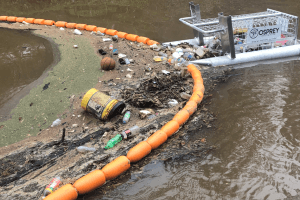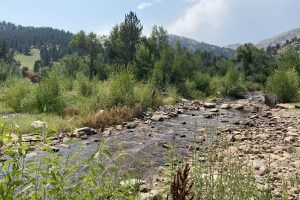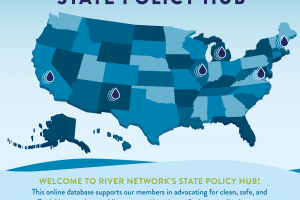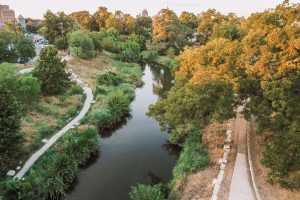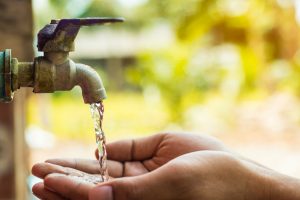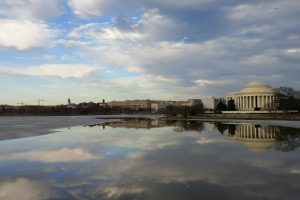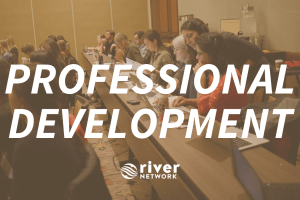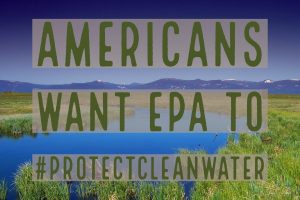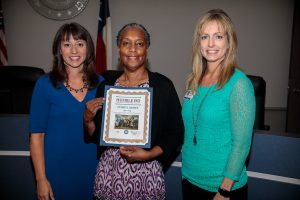Access to and feelings of safety within our nation’s natural areas and waterways is not equitable. As River Network noted and the nation reckoned with following widespread protests in 2020, Black, Indigenous, and people of color (BIPOC) in America frequently face racism in outdoor spaces, including around and on the rivers and waterways our network… Read More ›
Blog
The Role of Coalitions in Propelling Diversity, Equity, Inclusion, and Justice Work Forward
by Brenna GogginThis blog post was written by Mariah Davis (Choose Clean Water) and Ellen Underwood (Coalition for the Delaware River Watershed). Coalitions, collaboratives, and networks play an integral role in promoting new ideas, building connections, and exploring new avenues for support. As the only national nonprofit whose sole purpose is to connect and strengthen the nationwide… Read More ›
Authentic Community-Water Utility Partnerships Yield Big Results
by Katherine BaerIn Tucson, Arizona, water is scarce and temperatures can be scorching. As part of the Colorado River Basin, demand for water is outstripping availability, due in part to climate change. Tucson is also getting hotter, especially in “urban heat islands,” which disproportionately affect poorer neighborhoods with fewer trees and more concrete. While many of the… Read More ›
What’s Inside the Infrastructure Investment and Jobs Act for Water?
by Erin KanzigUnderstanding what’s inside a 1,000+ page bill can feel daunting- so we’ve done our best to pull out the details below in a longer-than-usual blog post (!) as well as some thoughts on what’s ahead for implementing River Network’s priorities- clean, safe, affordable drinking water, resilient cities and communities, healthy rivers in agricultural landscapes, and robust… Read More ›
How 90 High Schoolers Removed Over 1 Ton of Community Litter
by Jared HockingEarlier this year, in collaboration with River Network and with support from Ball Corporation, Findlay, Ohio’s Blanchard River Watershed Partnership (BRWP) and the local United Way organized an Earth Week clean-up event opportunity for 90 National Honors Society (NHS) students to collaborate with their community, gain valuable leadership skills and foster a commitment to maintaining a healthy,… Read More ›
Trash to Action: How Litter Clean Up can Lead to Change
by Katherine BaerThis is a guest blog post by Aaron Dickinson, a Masters of Public Policy student at Duke University who joined River Network this past summer as an intern. How can trash collection and clean up lead to change in a community’s policies or practices? Because River Network supports community engagement through litter collection, trash clean… Read More ›
49 Years of Clean Water Protections – Looking Toward the Future
by Colleen McGuireThe Clean Water Act is turning 49 and we have much to celebrate and much to look forward to in the year ahead. Let’s kick off the celebration by focusing on the wins of this past year and getting excited about the upcoming 50th Anniversary. All eyes are on the Biden Administration and the Environmental… Read More ›
Introducing River Network’s State Policy Hub
by Erin KanzigIntegrating Equity Into Integrated Water Management Planning
by Diana ToledoWater is a critical resource. We depend on it for our communities’ health, economies, and environmental and social resilience. But managing our available water resources to meet those diverse needs is a complex exercise. Over the past two decades, Integrated Water Resource Management (IWRM) has emerged as an approach to navigating these complexities, providing a… Read More ›
Funding Water Infrastructure in Your Community with American Rescue Plan Dollars
by Katherine BaerRiver Network Clean Water Fellow, Erin Kanzig contributed to this blog. As part of the response to the coronavirus pandemic, Congress passed the American Rescue Plan Act (ARPA) back in March to help revive the economy and protect public health by providing direct support to individuals as well as state, tribal, and local governments. The… Read More ›
Unpacking Federal Water Policy Progress, Gaps & What Lies Ahead
by April IngleLike many of you, when the Biden Administration and the new Congress began their work at the start of this year, I began hopefully anticipating what they would do help ensure more people have access to safe, clean, affordable water and our communities have healthy, resilient waterways. Since then, as droughts, floods, wildfires, storms, and… Read More ›
Building Strong Champions with Professional Development
by Brenna GogginTo address today’s water crisis, the national network of water protectors needs strong leaders. That’s why Building Strong Champions is the essence of River Network’s mission. At its core, Building Strong Champions is building the capacity of individuals and organizations. This blog post is the third in our series highlighting this work: professional development, a… Read More ›
EPA Needs to Hear from Us: Fix Clean Water Act Rollbacks!
by April IngleAfter the Dirty Water Rule went into effect in 2020 more than half of the nation’s wetlands and streams lost Clean Water Act protections. Every day the Dirty Water Rule stays in effect streams and wetlands across the country are at risk of destruction and pollution. We need the US Environmental Protection Agency (EPA) to… Read More ›
Online Accessibility as a Component of Water Equity
by Carly SchmidtFor years, River Network has hosted online webinars, trainings, and peer calls to engage members of the water community around relevant and topical issues. But as many organizations, including River Network, have ramped up online events and digital outreach in the last few years, and particularly over the past 18 months in response to COVID-19,… Read More ›
New Community Leadership Programs for Climate Resilience Launched with River Network Support
by Hannah MicoLast November, River Network published part one of a two-part toolkit series on Equitable Climate Resilience. This first tool, titled Fostering Community Leadership, introduced community leadership development programs as a way to center equity in conversations, decisions, and community impacts related to climate change. We put the tool to work at the beginning of 2021 by granting three organizations funds, planning resources, and direct… Read More ›


